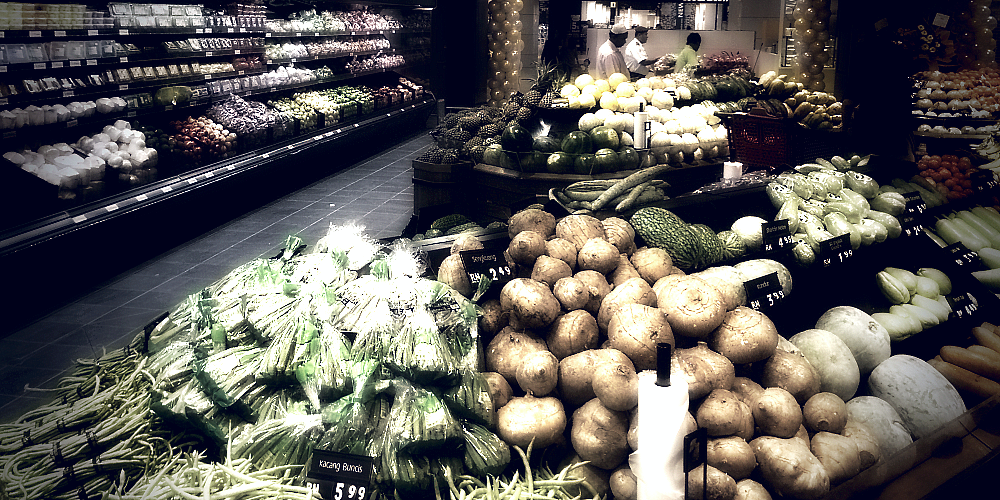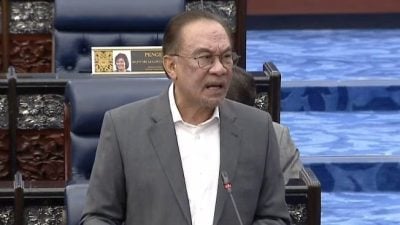The 6% logistic service tax imposed on businesses will eventually be transferred to end-consumers.
The government announced to hike the sales and service tax (SST) from 6% to 8% effective Friday (March 1).
According to the SST guidelines, F&B, communication, parking services and the newly added logistic service tax will be 6%, while the tax for other services will be increased to 8%.
However, maintenance management services related to residential land and buildings provided by developers, joint management bodies, management companies or residential associations, will be exempted from SST.
What worries most Malaysians is whether the SST hike will spark another round of inflation.
KL’s “mixed rice index,” a local equivalent of the Big Mac index, could be increased to RM11 for a 1-meat, 2-vegetable meal, having been raised from the pre-pandemic level of RM7 to RM9 after the pandemic.
It is generally believed that maintaining the tax for F&B, communication and parking services at 6% should help offset the impact from the newly imposed 6% logistic service tax, and will therefore raise the inflation rate by a meager 0.19 percentage point.
That said, we must not underestimate the impact from the newly introduced 6% logistic service tax, as this sector involves more than just van deliveries.
Modern logistic cost makes up about 10% to 16% of a product’s cost, and it entails a very wide scope covering almost all processes in a company’s operation, from material supply to the delivery of goods to the hands of consumers.
The 6% logistic service tax imposed on businesses will eventually be transferred to end-consumers.
As such, the increase in CPI from the 6% logistic service tax could be a lot more than the just 0.19% proposed, more likely between 0.6% to 1%!

The Society of Logisticians Malaysia President Chang Kah Loon said that in the past only warehousing and customs declaration services were taxed, but now other logistic services such as manpower management will all be taxed.
Although not all services will be subjected to 8% tax, every supply process from import to retailing of a merchandise will all be subjected to multi-tier service taxes, making it inevitable for businesses to hike the prices of end products.
In other words, consumers will have to expect heavier financial burdens falling upon their shoulders.
Moreover, it is unlikely for retailers to absorb all the additional cost from SST. We have learned from past experiences that a 10 sen/kg increase in the price of white sugar will see the price of a cup of coffee at the hawker center up by also 10 sen.
On average, about 35% of a fresh graduate’s RM3,000 monthly salary is spent on food, and this percentage could rise to 40% to 60% for M40 or B40 households.
According to Engel’s law, the lower the income of a household or individual, the higher the percentage of the income will be spent on daily necessities such as food. A coefficient above 59% represents poverty, 50-59% represents a state where daily needs are barely met, 40-50% a moderately well-off standard of living, 30-40% a good standard of living and below 30% a wealthy life.
Although the newly taxed services such as karaoke, night clubs, fitness centers, massage parlors and pubs are not necessities, they do form part of modern people’s lives, and should therefore not be perceived as not affecting our lives.
Some experts are of the view that the 2 percentage point increase in SST will only marginally increase business cost.
They believe the operators can still afford to absorb the increase or transfer the additional cost to the consumers. We feel that the probability of the latter is a lot higher.
MCA President Wee Ka Siong is also holding a similar view on inflation. He said last month that he did not agree that SST would spark a new round of inflation, given the fact that SST would be largely kept at the 6% level.
He felt that the higher utility tariff and SST would affect the whole market and the consumers would eventually have to bear the cost.
The finance ministry announced on Wednesday that 8% SST will be charged on electricity usage of more than 600 kWH per month, but 85% of Malaysian users will not be affected by this measure.
Meanwhile, filtered water service will also be exempted from SST, and we believe this will help mitigate the impact from the SST hike.
ADVERTISEMENT
ADVERTISEMENT







































